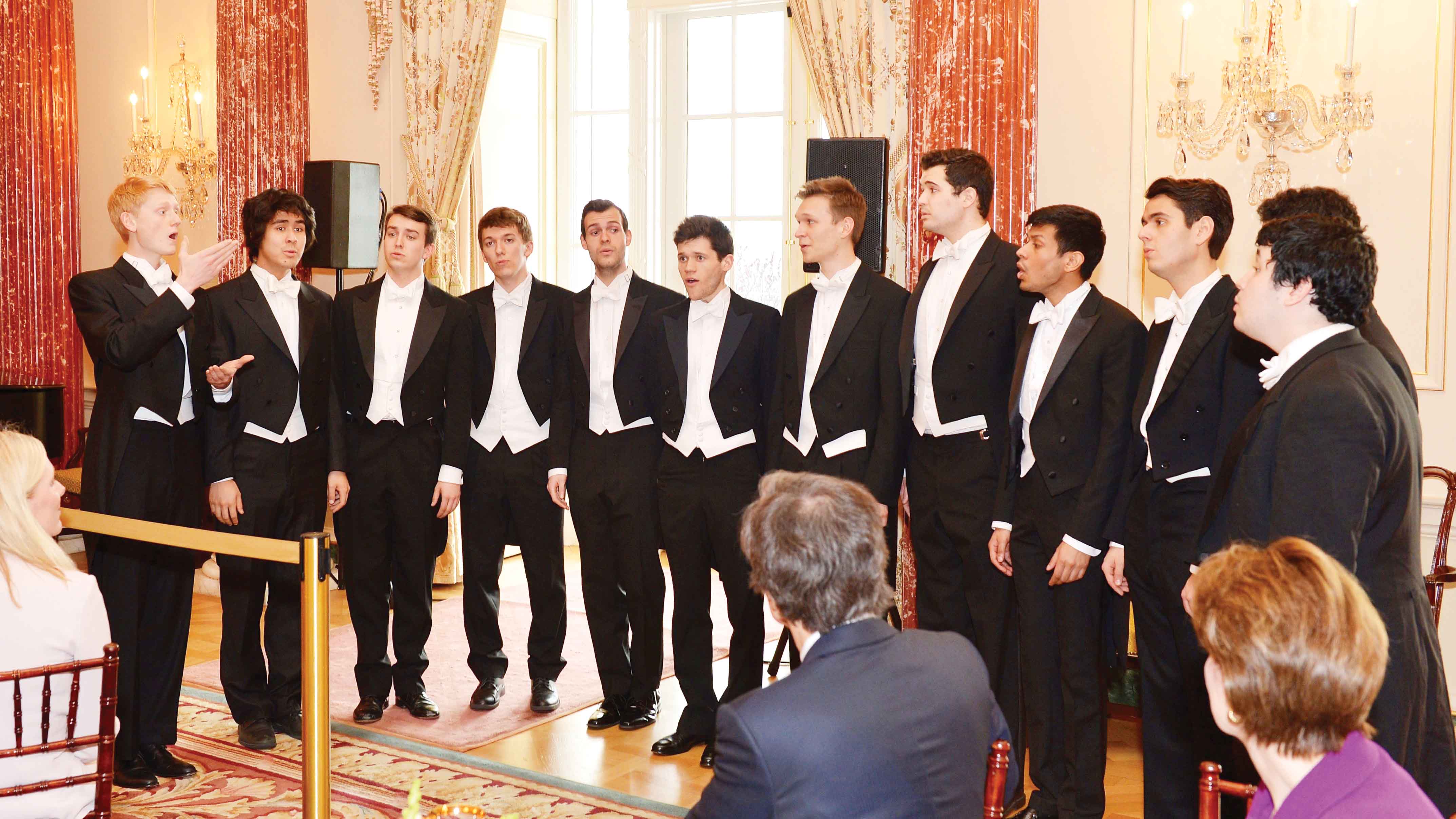
Courtesy of Wikimedia Commons
Amid the debate surrounding the petition calling for the Yale Whiffenpoofs to admit women, students opposing and supporting the petition alike raised concerns about the lack of coed a cappella options for seniors.
Claire Carroll ’18 drafted a petition calling for the integration of women into the Whiffenpoofs in early February, after the group voted in November to remain all-male. Despite the group’s vote, a record number of 15 female and gender nonbinary students auditioned for the group, with some performing their prepared numbers and others protesting through silence. The debate spurred ideas about how to foster greater inclusivity within the a cappella community, including the possibility of adding a coed senior a cappella group. Still, members of the a cappella community were torn over the benefits of adding a senior coed group.
Members from the all-female senior group, Whim ’n Rhythm, told the News that they expect the Whiff’s admittance of women would put Whim at a disadvantage because the best female talents would be diverted to the newly integrated Whiffenpoofs.
“Rather than integrating the Whiffs, [Whim prefers] having more of a coalition and partnership between the groups where we co-tour and financially are on more equal footing,” said Zoya Afridi ’17, the co-business manager of Whim ’n Rhythm.
Rebecca Young ’18, a member of the mixed-gender a cappella group Red Hot and Blue, said the admittance of women into the Whiffs has nothing to do with the social space that Whim provides. She added that the integration of the Whiffs is not a zero-sum game when it comes to the fate of Whim.
“I can count, right off the bat, five women who are part of this movement who next year will not be doing a capella. Not because they don’t want to be, but because they want to be in a coed group,” Young said. “They just won’t have the option. … I can’t emphasize this enough: this isn’t about coed groups being better than all-female groups, it’s about personal preference. And my preference is to be in a coed space.”
However, Jackie Ferro ’17, who signed Carroll’s petition and wrote an op-ed in the News last year calling for the Whiffs to include women, said the point of the petition is not about advocating for a coed space because there are multiple options for seniors who wish to sing in a mixed-gender group. For example, she said, they could choose to stay with their original undergraduate group for another year, or join the Yale Glee Club or Yale Gospel Choir, the latter of which Ferro has chosen.
She argued that it is not necessary to add a new a cappella group, as creating a new coed group is only preferable when seniors hope to sing a certain genre of music not covered in existing single-gender a cappella groups.
Ferro added that the real need for the Whiffs’ integration stems from a disparity of financial and social resources, not the lack of a coed space. In general, Ferro said, mixed and all-female groups cannot compete with the privilege that all-male groups enjoy, simply because they were formed when women were not allowed to enroll at Yale.
“This isn’t about creating more spaces — we already have a lot — it’s about power and resources and capital and control and what voices are marked as valuable,” Ferro said. “Adding a third senior group is just one more variable to juggle. We’ll juggle it just fine if we have to, but it won’t make things any easier.”
The Yale Singing Group Council did not respond to requests for comment, and seven freshmen members from various a cappella groups declined to comment.
Of the five mixed gender groups at Yale, the oldest coed a capella group, Red Hot and Blue, was established in 1977.







